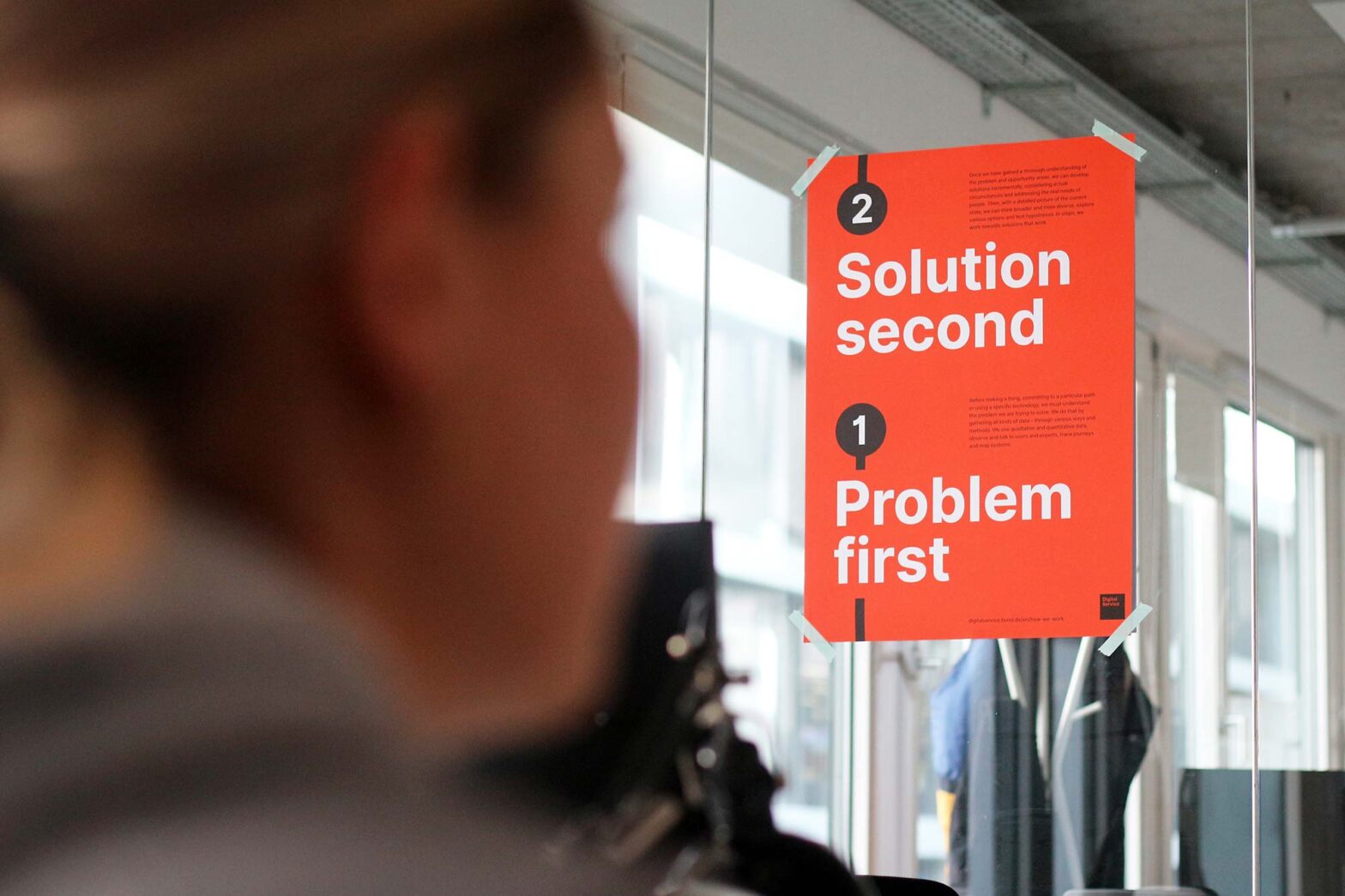I made a new poster – or rather two: one in English, one in German. That seems to be a sensible thing to do from now on. This is because we want to share our learnings internationally while, of course, foremost trying to transform German public administration.
My colleague Sarah, a senior product manager, asked me for it and offered the following phrase as input: “Do not run straight to the solutions”.
Over the last few weeks, I shared some drafts; she provided feedback. And we arrived at 2 versions in different colours with short texts explaining how we work: Problems first, solutions second.
Continuing the international exchange and sharing with others
The poster received kind feedback on social media. The most considerate comment came from my former colleague Mark, GOV.UK’s ex-Head of Graphic Design, using the word “gorgeous”. ?
While many essential posters have already been created at GDS, some seem still to be missing. And as GDS has gone mostly quiet on posters since the departure of key people, I want us to pick up the baton and continue this outward-facing activity.
The posters can be downloaded from our GitHub repository; some people seem to have done that right away.
This week, the OECD presented a toolkit on ‘Good Practice Principles for Public Service Design and Delivery in the Digital Age’. My former GDS colleague Ben Welby led and shared the work of many over the past 18 months.
The principles take clues from many other published documents, including the UK’s Government Design Principles, the GOV.UK Service Manual and service standards from around the world. They describe ways of working through 3 pillars, 9 principles and 68 sub-principles. It’s a good remix of many familiar aspects with little novelty, but having it played back to us by an influential multilateral organisation can be helpful.
The session also included some facts about the overall state of public service design in OECD countries and it’s so great.
The impressive Marine Boudeau, France’s chief designer, shared numbers from French digital public services, demonstrating how they are now collecting data across hundreds of services. There is no way for us to do similar things just yet, but there must still be better ways of gathering data for German public services.
Conference season is fully on. After returning from London, there was World Usability Day, and the UK Design Council ran its Design for Planet festival for the second time. We also had a sudden change of content for next week’s virtual Civic Design conference. My colleague Stephanie, our Chief Product Officer, dropped out, and Magdalena, our Head of Product, stepped in.
Based on the proposal we submitted back in May, the talk is titled ‘Zero Hour: How to get far quickly when starting your digital service unit late’. As Magdalena is a great communicator and presenter, I have little to do. It will be a talk reflecting on various learnings from the last 2 years. It’s part of a conference segment my international community and book collaborator Kara has been curating, and it looks excellent regarding.
One thing that exploded on social media this week was our book club stickers. My colleagues Daphne and Sabrina designed miniature book spines to show which books members of internal book club read and the tweet about them went a little viral.
I’m glad small cultural artefacts like these receive such positive feedback. It reinforces little good things.
What’s next
On short notice, I was asked to join the autumn conference of NExT, the German public sector community of practice network. It will run over 2 days in Boppen, in the southwest of Germany, in a region known for its excellent wine. It should be a good opportunity to connect with more people in the German public sector.

